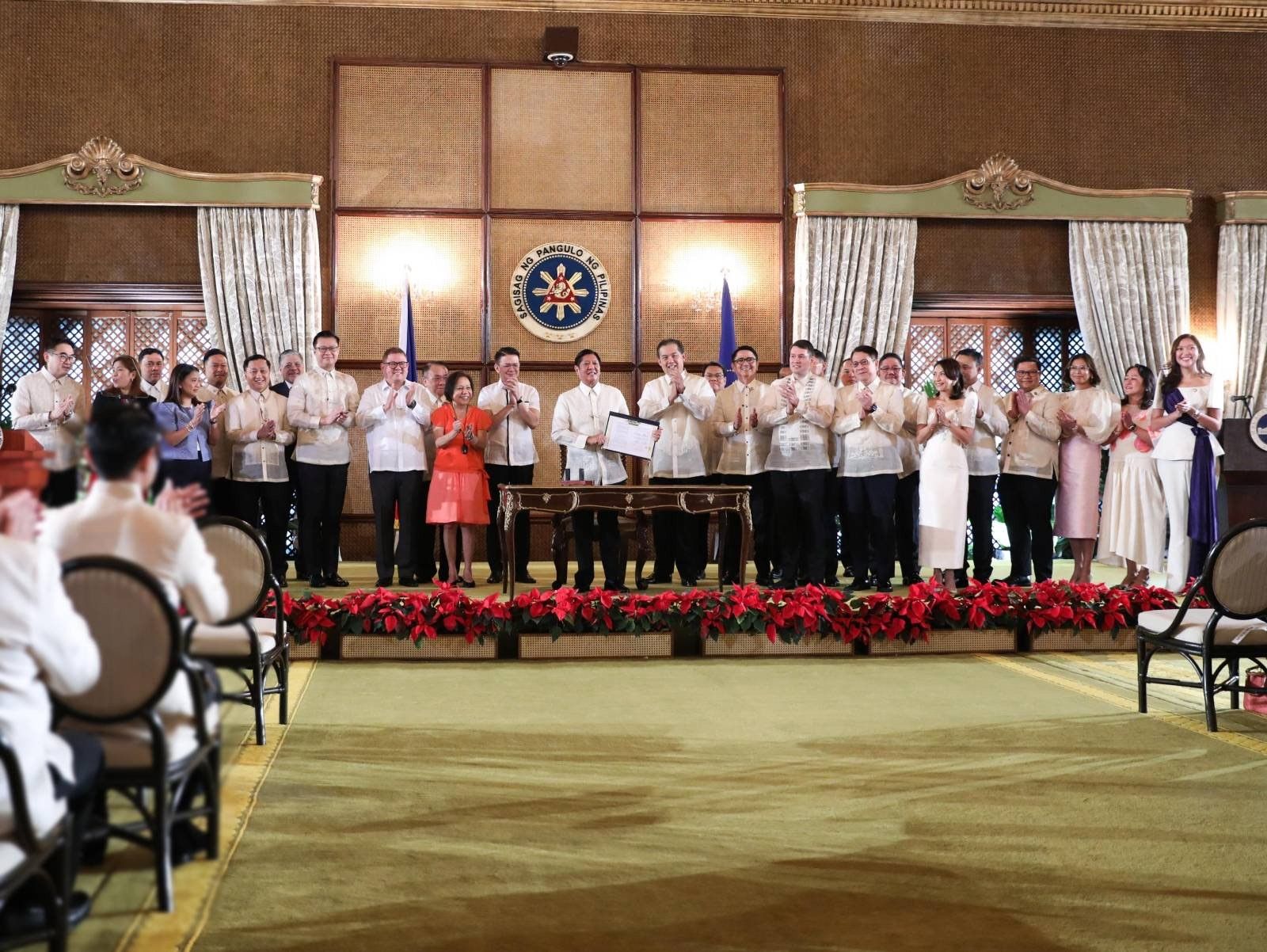Marcos OKs RCEF extension to 2031, boosts annual funding

MANILA, Philippines — President Ferdinand Marcos Jr. on Monday, December 9, signed a measure extending the Rice Competitiveness Enhancement Fund (RCEF) and increasing the annual budget allotted for it.
The RCEF is a result of Republic Act 11203 or the Rice Tariffication Law of 2018, which lifted restrictions from the import of foreign rice. The resulting tariffs were used to fund the RCEF, with the goal of bolstering local farming so it can compete with foreign rice.
Under the law, the RCEF was meant to be enacted for six years, receiving P10 billion per year.
"With the expiration of the original six-year plan for RCEF fast approaching, it became clear that we needed to extend and strengthen the program. And this is where this law comes in, extending the program to 2031, and significantly increasing its funding from the original P10 billion to P30 billion annually," Marcos said in his speech during the ceremonial signing of the bill.
In the amendments that Marcos signed in Republic Act 12078, the P30 billion will be divided as follows:
- High-quality seeds: P6 billion
- Farm mechanization: P9 billion
- Extension and training programs, rice farmers' financial assistance, credit, soil improvement, solar-powered irrigations systems, water impounding: P15 billion
"This will enable us to do much more for our farmers, ensuring that they have the resources that they need to succeed and to make the rice industry even more competitive," Marcos said. Under the new law, the Department of Agriculture (DA) is granted greater authority in cases of price hikes.
Under the new law, the Department of Agriculture (DA) is granted greater authority in cases of price hikes.
In an ambush interview on the sidelines of the ceremonial signing, DA Secretary Francisco Tiu Laurel Jr. said that the measure should, in the long run, pave the way for lower rice prices.
"We'll be more efficient, we'll be producing more per hectare," Laurel said.
The expanded law also addresses soil rehabilitation, as well as irrigation issues.
"In cases of sudden rice shortages or price hikes, the DA will now be empowered to take the necessary actions to stabilize the market. This will help ensure that the price of rice remains affordable and accessible to every Filipino," Marcos said.
The DA will have to create a database of all grain warehouses and storage facilities across the country for a more comprehensive monitoring of the country's rice reserves. The law also allows the DA's Bureau of Plant Industry to inspect warehouses.
Asked how this new regulatory power would help the DA, Laurel said it would be beneficial. However, he noted that smuggling has already been curbed due to the DA's recent efforts.
Laurel said that apart from regulatory functions, the DA can now take inventory of rice stocks so that they could have accurate data.
The Philippines has consistently been dubbed as the top rice importer of the world. The latest report from the Bureau of Plant Industry showed that in 2024, the Philippines will have already imported 3.9 million metric tons of rice.
The Palace also recently issued an executive order mandating lower rice import tariffs.
- Latest
- Trending

































